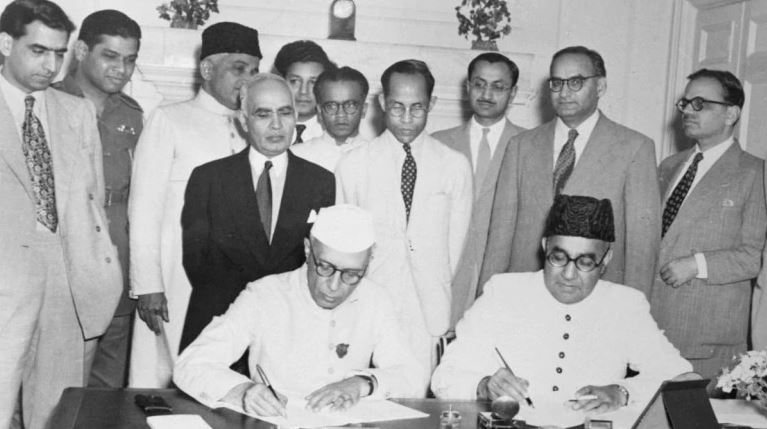On April 2, 1950, the Prime Minister of Pakistan, Liaquat Ali Khan and the Indian Prime Minister Jawaharlal Nehru met in Delhi to guarantee the rights of minorities in both countries after the Partition of India and after 6 days, on April 8, both signed what came to be known as Nehru-Liaquat pact.
During a discussion in Lok Sabha for the Citizenship Amendment Bill (CAB), Amit Shah, the Home Minister of India, said that the country needs CAB because the Nehru-Liaquat pact failed.
The failure of the pact is now remedied by BJP through Citizenship Amendment Bill, which seeks to provide Indian citizenship to members of minority communities in Pakistan, Afghanistan and Bangladesh who have fled religious persecution.
These communities include Hindus, Sikhs, Christians, Buddhists, Jains and Parsis, all of whom are in minority, and whose numbers have fallen drastically in each of the three countries.
The Nehru Liaquat pact failed as six years after the pact was signed, Pakistan declared itself ‘Islamic republic’ under the first constitution. The declaration of Pakistan as an Islamic republic was opposed by all non-Muslim members of the constituent assembly. Nevertheless, the act was passed as the majority of the members of the constituent assembly were Muslims, and almost all of them voted in favour of declaration as the Islamic Republic.
The further Islamization of Pakistan started after a coup by Ayub Khan, whose military regime used Islam to garner the popular support, and the process culminated with General Zia ul-Haq, whom himself belonged to a family of clerics.
It is important to note that Hindu persecution has become an almost accepted norm in Pakistan. News cycle is filled with stories of abduction, murder, rape of Hindus in the country. Recently a Hindu girl was raped and murdered in the country. We cannot forget the incident that happened last year in the Sindh province where a young Hindu girl, Ravita Meghwar was forcibly converted and married to a Muslim man.
Even the minority Christians are not spared. Not very long ago, the world witnessed the anti-minority hatred that runs through the veins of the mainstream Muslim majority Pakistan population. The attacks on the Christian community include an attack on a church in Quetta in December 2017 that killed nine people and injured 57. A suicide attack targeting Christians celebrating Easter at a Lahore playground in March 2016 left 70 dead and more than 340 wounded.
The history of persecution of Hindus in the SAARC countries of Pakistan, Bangladesh and Afghanistan begs the question, if India, the motherland of Hindus, would not grant protection to Hindus then who will?
According to the 2011 census report, the population of minorities in India has increased in fact. On the other hand, the population of Hindus in Pakistan and Bangladesh had reduced considerably.
The Modi government has rightfully stepped in and decided to grant citizenship status to the minorities from Pakistan, Bangladesh and Afghanistan. The Citizenship (Amendment) Bill not only grants them relief from persecution but also provides them with the respect they deserve, which the neighbouring countries have not provided them, unfortunately. It is a moral duty of the nation to protect and shelter the persecuted Hindus of the world. India is a natural home for the Hindus and CAB seeks to do precisely this duty.
